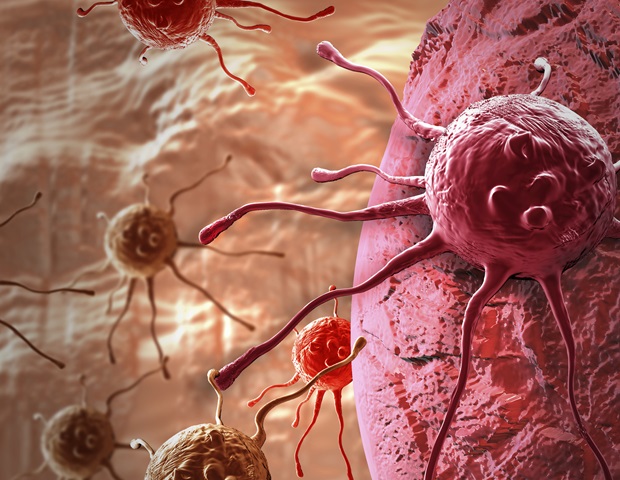
A study conducted at the VIB-KU Leuven Center for Cancer Biology discovered that healthy liver tissue surrounding a tumor activates a defence mechanism that restrains tumor growth. Remarkably, the researchers found that hyperactivation of this mechanism above levels normally present in the liver, triggered the elimination of different types of liver tumors in mice. This discovery identifies a novel strategy to fight against liver cancer and could inspire new therapeutic approaches that mobilize normal cells to kill cancer cells. The results of the study are published in Science.
Fighting tumors
Current chemotherapies aim at killing rapidly proliferating cancer cells. However, such therapies are often only temporarily effective because cancer cells quickly evolve drug resistance. Nowadays, other approaches such as immune therapy do not target tumor cells themselves but activate the natural defense function of the immune system.The study, led by Prof. Georg Halder (VIB-KU Leuven Center for Cancer Biology), showed that not only the immune system but also non-cancerous liver cells around liver tumors have the capacity to kill nearby tumor cells. When they experimentally activated this novel mechanism in mice with liver tumors, these mice survived significantly longer and had a drastically reduced tumor burden.
Prof. Halder says:
While the study shows that this anti-tumor mechanism exists, how exactly activated liver cells cause the elimination of cancer cells is not known, but it is obviously a highly significant question that we are currently investigating.
Unexpected genes
This observation was surprising because YAP and TAZ are usually highly expressed in different human cancers where they drive tumor cell proliferation and survival. "The identification of anti-tumor functions in genes traditionally considered as tumor promoting genes completely changes how we think about cancer genes and their function in normal tissues," says Iván Moya, first author of the paper.
Towards new therapies
While this study showed that this anti-tumor mechanism can kill tumors and metastases in the liver, it is not yet known whether similar mechanisms can be activated in other organs. "Given the striking anti?tumor effect of YAP?activated liver cells on liver tumors, our discovery has the potential to provide ground-breaking insights into a novel strategy to fight," says Stephanie Castaldo, co-first-author.However, while this remarkable finding identifies a completely new strategy to fight cancer in mice, this study is the first molecular characterization of this novel anti-tumor mechanism which means that more research is needed to investigate how these findings can be applied to benefit cancer patients. "Indeed, the next step is to test to what degree this mechanism also affects human cancer cells," says Laura Van den Mooter, also co-first-author.
VIB (the Flanders Institute for Biotechnology)
Journal reference:
Moya, I. M. et al. (2019) Peritumoral activation of the Hippo pathway effectors YAP and TAZ suppresses liver cancer in mice. Science. doi.org/10.1126/science.aaw9886






No comments
Post a Comment